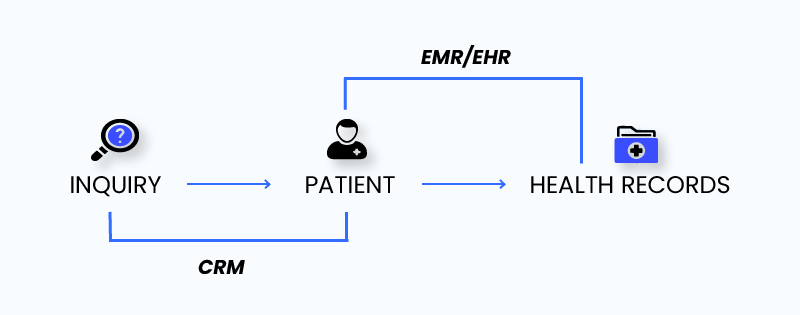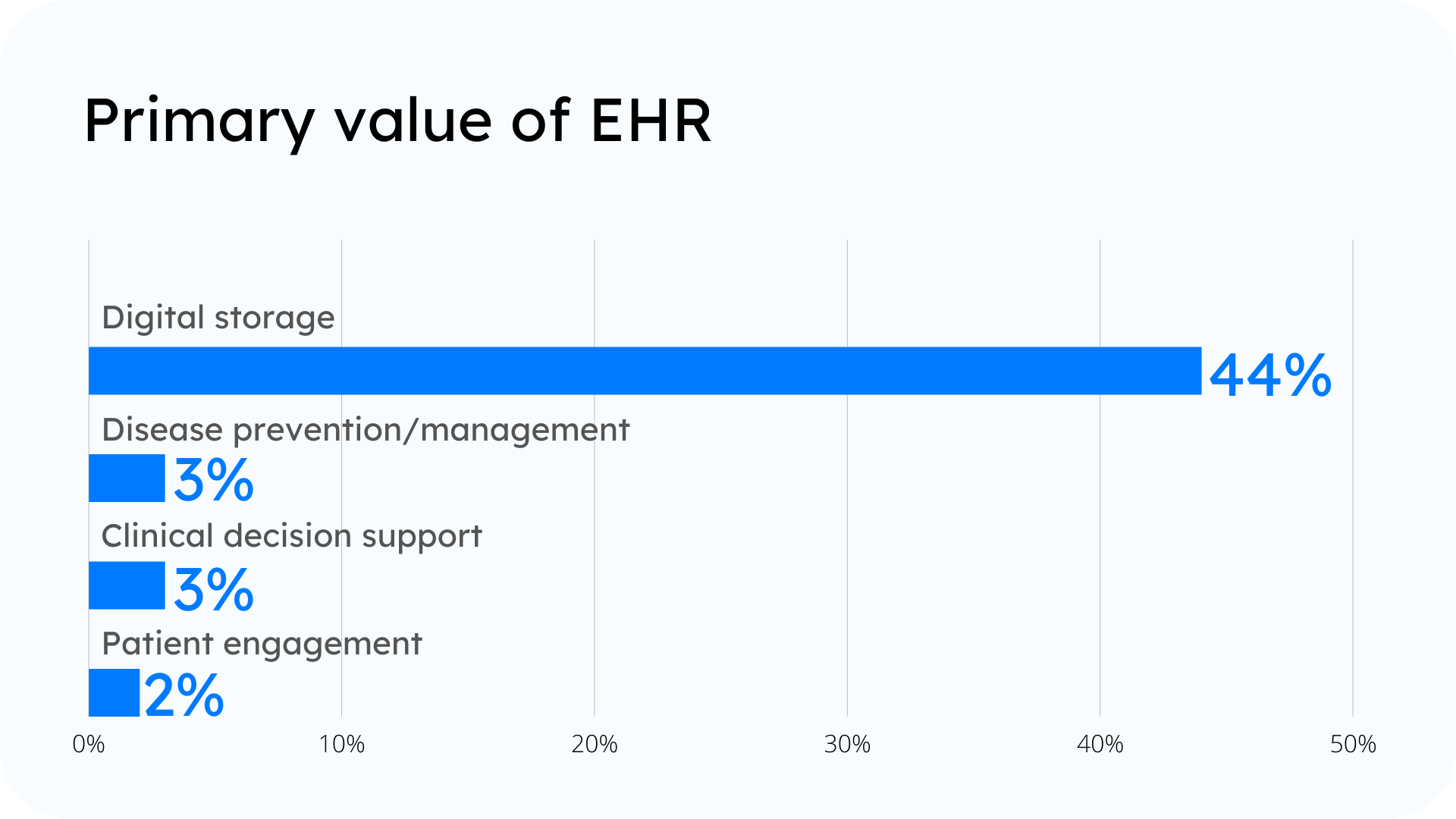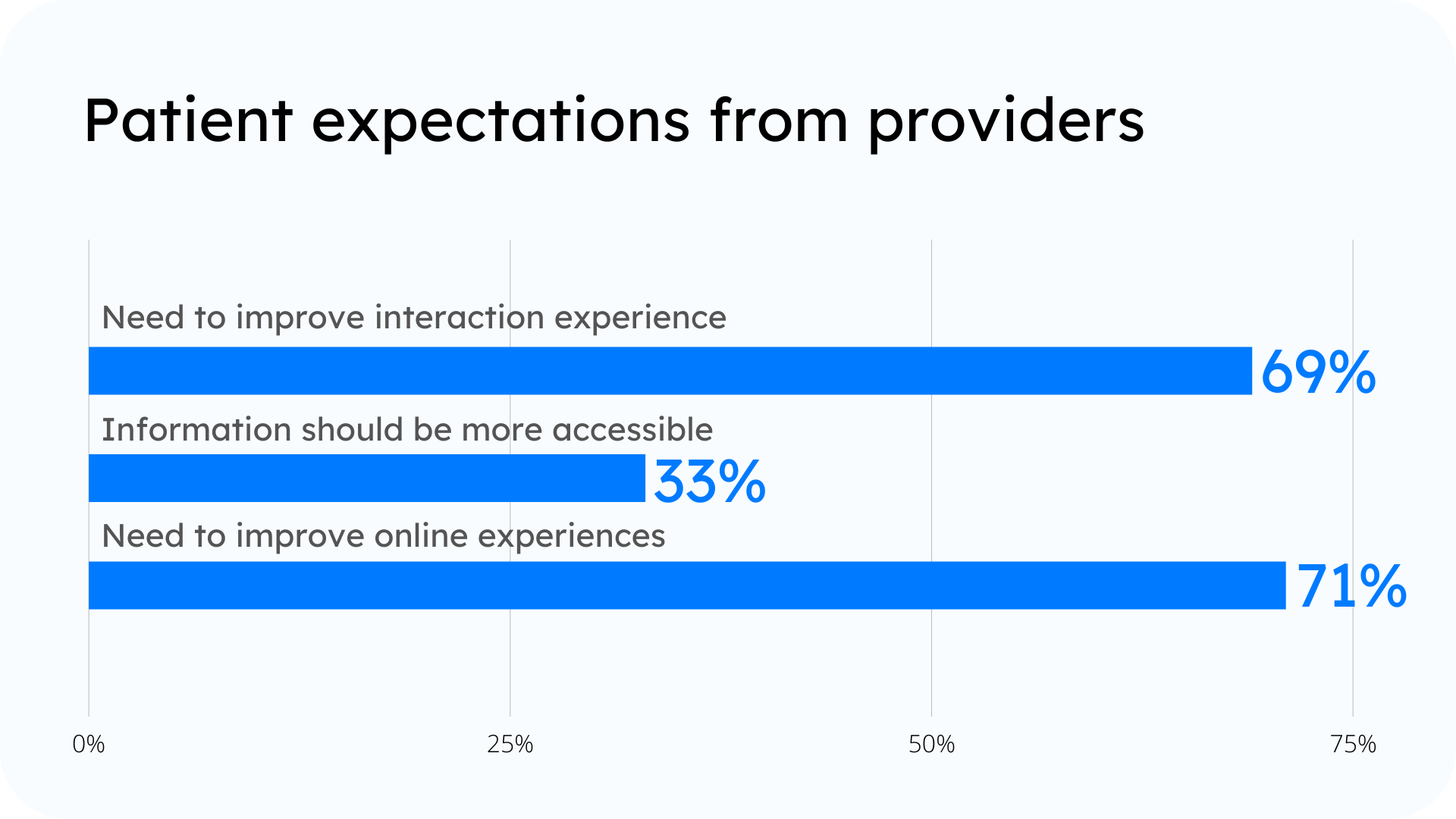- Home
- Learn
- Healthcare
- EHR Integration with Healthcare CRM to Optimize Patient Care
HEALTHCARE
EHR Integration with Healthcare CRM to Optimize Patient Care
Contents
Nearly 90% of office-based physicians in the United States use an EMR/EHR system
These systems are, of course, a great aid in your practice. 63% of primary care physicians believe EHRs have helped them improve care. Also, 66% of them are somewhat satisfied with their current EHR system.
However, EHRs are not a complete solution to all your practice needs.
For instance, EHR software doesn’t help strengthen relationships with your patients.
7 in 10 PCPs say so.
But, no doubt, it’s crucial to build long-term relationships with your patients.
And you can do so by improving their experiences—from the moment they contact you to intake and follow-up/further treatments.
While quick access to electronic patient records helps you improve care and patient outcomes, it can’t help you improve engagement and the intake process.
One proven solution to ensure care and a delightful patient experience is EHR integration with healthcare CRM.
An EHR or electronic health record, is a class of systems built for securely storing patients health records in a digital format and ensuring the shareability of patient records across the healthcare ecosystem.
However, the actual use of the EHR system comes into play only after a successful appointment. That is, you will use your EHR system when a patient shows up for an appointment.
But what happens to the inquiries that haven’t booked an appointment yet?
That’s where a Healthcare CRM system comes into play. Think of it as a bridge between an inquiry and a patient.

Here’s a run-down on what each platform delivers:
| Functions | EHR system | LeadSquared Healthcare CRM |
| Inquiry capture | ❌ | ✅ Easily capture inquiries from website, social media, and ads and track their journey henceforth |
| Auto qualification | ❌ | ✅ Automatically qualify patient inquires based on the services you provide. |
| Lead management and Task management | ❌ | ✅ Helps you capture leads from several different sources, organize lead information, and manage interactions with them. Also helps manage operational tasks, such as insurance documentation collection and payment follow-ups. |
| Patient profile management across different services/departments | ❌ | ✅ Provides a 360-degree view of patients, their interactions, services used, and transactions |
| Marketing communication | ❌ | ✅ Personalize every communication. Send SMS, WhatsApp messages, Emails to your inquiry/patient list for health camps and more. |
| Built-in-dialer / Cloud calling | ❌ | ✅ Call your patients from the CRM portal for follow-ups. LeadSquared seamlessly integrates with RingCentral and other cloud telephony solutions. |
| Appointment scheduling | ✅ | ✅ Along with appointment scheduling, you can also create appointment reminders to reduce no-shows. |
| Patient portal | ✅ | ✅ LeadSquared provides self-serve patient portal for appointments, lab test request, and more. |
| Patient onboarding | ✅ | ✅ With CRM, you need not collect physical documents for address proof, insurance forms, consent letters, etc. It allows you to create e-forms, which patients can fill and submit at their convenience. |
| Doctor onboarding | ❌ | ✅ |
| Referral management | ❌ | ✅ |
| Medical templates and forms | ✅ | ✅ |
| Tools to ensure patient satisfaction | ❌ | ✅ Automatically sends request for reviews via text or email to each patient after their appointment. |
| Automated reports | ❌ | ✅ Fetch patient satisfaction, team efficiency, and revenue attribution reports in just a few clicks. |
According to a Stanford Medicine and Harris Poll survey of 521 U.S. PCPs licensed to practice, physicians think of EHR software as a digital storage system.

As mentioned before, to grow your practice, you must focus on building a long-term relationship with patients by keeping them engaged. That is, provide them instant support, answer their queries, follow up with them for routine checkups, and more.
Patients’ expectations have increased. For instance, 71% of patients want their healthcare services to be as convenient as online shopping. Therefore, your patient intake process must evolve too.

Many providers like Form Health, Pulse & Remedy, Klarity, Two Chairs, Advanced Recovery Concepts, Nova Vital Recovery, and more, opted for CRM even though they had an EHR system in place.
Why? We studied their pain points and learned:
A healthcare CRM is a patient relationship management tool that optimizes every aspect of patient acquisition, management, and retention. It makes your intake managers and supervisors more efficient. It enables you to:
If patient engagement and relationship management are the strengths of CRM, storing medical records and interoperability are the core functions of EHR systems.
The benefits of integrating your EHR system with CRM include:
LeadSquared’s HIPAA compliant healthcare CRM seamlessly integrates with all the major EMR/EHR solutions. If you use a specialized product, LeadSquared supports custom API integrations to build an integrated clinic/hospital management solution.